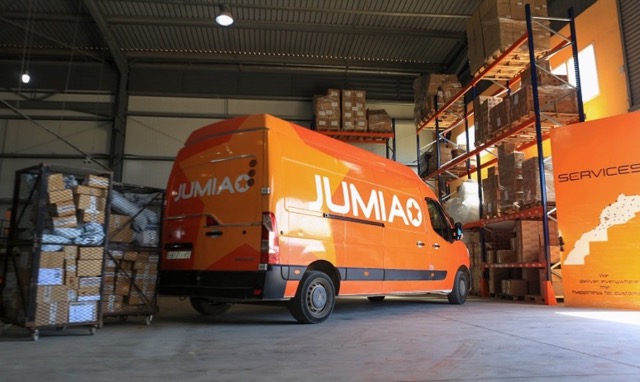Jumia’s third-quarter results today revealed a company undergoing a radical strategic shift. While headline numbers showed strong revenue and GMV growth, the real story is a near-total collapse in its standalone JumiaPay app business—a move Jumia frames as a deliberate pivot to save costs and focus on its core, and more profitable, e-commerce marketplace.
The numbers are staggering. The “Amazon of Africa” reported a 99% year-over-year crash in orders from its JumiaPay app, which fell from 1.6 million in Q3 2024 to virtually zero in Q3 2025. Consequently, total JumiaPay transactions on the platform fell by 47%, dropping from 3.0 million to 1.6 million over the same period.
This collapse isn’t an accident; it’s a strategy.
Jumia management explained the move was “in line with our strategic focus on scaling physical goods” and a “reduced emphasis on digital products sold through our JumiaPay App, which contributes high order volumes with limited revenue impact.”
In short, Jumia has effectively shuttered its high-volume, low-margin business of selling items like mobile airtime and bill payments, which previously padded its transaction volumes but did little for the bottom line.
The Vanity Metrics Problem
For years, African tech companies—Jumia included—have been judged by metrics that look impressive on pitch decks but mean little for actual business health. Total orders. Transaction volumes. Active users. These numbers tell investors a story of scale and momentum, even when the underlying economics are broken.
JumiaPay’s airtime and bill payment business was the poster child for this vanity metrics problem. Millions of transactions generating minimal revenue, requiring infrastructure maintenance, customer support, and regulatory compliance—all for margins so thin they barely registered.
It’s the classic trap: growth that costs more than it earns, masked by impressive-sounding numbers that distract from profitability fundamentals.
Jumia just decided to stop playing that game.
What Actually Grew (And What It Means)
Despite—or perhaps because of—the JumiaPay collapse, Jumia’s core business showed real strength.
GMV (Gross Merchandise Value) increased 6% year-over-year to $138.8 million, while total orders declined just 8% to 6.6 million. This means the average order value is climbing—customers are buying more valuable items per transaction, exactly what you want to see in a maturing marketplace.
Revenue grew 11% to $36.5 million, with marketplace revenue up 15%. Marketing services revenue jumped 34%, suggesting that Jumia is finally monetizing its seller ecosystem beyond just transaction fees. This is critical: taking a cut of advertising spend from merchants is significantly higher margin than facilitating low-value transactions.
Most tellingly, adjusted EBITDA loss narrowed to $11.5 million from $20.6 million a year earlier—a 44% improvement. When you’re losing money, the most important metric is how fast you’re reducing the burn rate. Jumia just cut its cash bleed nearly in half, partly by killing a business line that generated activity but not value.
The Optics Problem
Here’s where it gets complicated. In the world of startup metrics and venture capital scorecards, Jumia’s Q3 looks like a disaster. Orders down. Transaction volumes collapsed. A fintech business essentially shuttered.
But in the world of actual business fundamentals—the world public market investors increasingly care about—Jumia’s Q3 looks like discipline. Focus. A company finally willing to acknowledge that not all growth is good growth, and that profitability requires hard choices.
The market’s reaction will be the real test. If Jumia’s stock gets punished for lower transaction volumes, it signals investors still value growth theater over sustainable economics. If the stock holds or rises, it suggests the market is maturing alongside the company—rewarding focus and unit economics over vanity metrics.
The Africa Fintech Reality Check
Jumia’s JumiaPay pivot is also a referendum on Africa’s fintech narrative. For years, investors poured money into African fintech startups premised on massive transaction volumes from everyday use cases: airtime, bill payments, micro-remittances.
The thesis was simple: If you could become the payment rails for Africa’s digital economy, capturing a tiny fee on billions of transactions would eventually add up to meaningful revenue.
But the economics never quite worked. Mobile money operators like M-Pesa and MTN MoMo had incumbency and scale. Banks had regulatory relationships. Fintechs were stuck in a middle layer—spending to acquire customers, but unable to monetize them profitably because the transaction values were too low and competition too fierce.
Jumia just admitted what many African fintech operators won’t say publicly: high-volume, low-value transaction businesses are brutal. Unless you have the scale of a Safaricom or MTN, or the regulatory leverage of a bank, you’re likely burning money to facilitate transactions that barely move the revenue needle.
What Jumia Is Betting On Instead
By pivoting away from JumiaPay as a standalone app, Jumia is doubling down on its original value proposition: e-commerce marketplace infrastructure.
The bet is that Jumia’s future lies in:
Higher-value physical goods transactions where margins are better and logistics create defensible moats. Selling a $200 smartphone generates more value than processing 100 airtime top-ups, even if the latter produces more “transactions.”
Merchant services and advertising, where Jumia leverages its platform to help sellers reach customers. This is the Amazon playbook—make money from the ecosystem, not just from transaction fees.
First-party logistics and fulfillment, which JumiaPay transactions didn’t require but physical goods do. Building logistics infrastructure is hard and capital-intensive, but it’s also defensible in ways that payment processing isn’t.
JumiaPay as an embedded checkout tool rather than a standalone super-app. Customers can still use JumiaPay to complete purchases on Jumia’s marketplace, but the company is no longer trying to compete with dedicated mobile money providers for everyday transactions.
This is a much more focused, defensible strategy. It’s also significantly less sexy than the “super-app for Africa” narrative that fintech investors loved a few years ago.
The Tough Questions Remain
Jumia’s pivot raises uncomfortable questions about its long-term viability in Africa’s brutally competitive e-commerce landscape.
Can Jumia achieve profitability before running out of cash? The company has been burning money for years. Narrowing losses is progress, but reaching profitability requires sustained execution in challenging markets.
Is African e-commerce infrastructure mature enough to support a pure-play marketplace? Last-mile logistics, payment systems, and customer trust remain fragile in many of Jumia’s markets. Focusing on higher-value goods is smart, but it only works if the underlying infrastructure can deliver reliably.
What happens when global giants get serious about Africa? Amazon has largely stayed out of Africa. If that changes, Jumia’s first-mover advantage may not be enough to compete against deeper pockets and operational expertise.
Can Jumia rebuild investor confidence after years of missed expectations? The company went public in 2019 with massive fanfare, then watched its stock crater as losses mounted and growth slowed. Regaining credibility will require multiple quarters of disciplined execution, not just one strategic pivot.
The Broader Lesson for African Tech
Jumia’s JumiaPay shutdown is a microcosm of a larger correction happening across African tech. After years of “growth at all costs” funded by cheap capital, the reckoning has arrived. Investors want profitability. Regulators want compliance. Customers want reliability.
Companies that can’t answer the profitability question are struggling. Those willing to make hard choices—cutting unprofitable business lines, exiting difficult markets, focusing on sustainable unit economics—are starting to see results.
Jumia just made one of those hard choices. It killed a business that generated 1.6 million orders but minimal value. It acknowledged that transaction volume, absent profitability, is just theater.
The real question is whether other African tech companies will follow suit, or whether they’ll keep optimizing for metrics that sound good in pitch decks but don’t translate to sustainable businesses.
What Happens Next
Jumia’s Q4 results will be telling. If the company can maintain GMV growth and continue narrowing losses without the cushion of JumiaPay transaction volumes, it validates the strategy. If revenue stalls or losses widen, it suggests the pivot came too late or wasn’t enough.
The company’s management deserves credit for making an unpopular but necessary decision. Shuttering a business line that generates millions of orders takes courage, especially when investors and media obsess over growth metrics.
But courage without execution is just expensive posturing. Jumia now has to prove that focusing on fewer, better transactions actually leads to profitability. It can build logistics infrastructure that works. That merchants will pay for advertising. That customers will keep coming back even without the gamification of airtime purchases.
In other words, Jumia has to prove it can be a real business, not just a story about African tech potential.
The next few quarters will show whether killing 99% of its fintech orders was a strategic masterstroke or a desperate last move by a company running out of options.
Either way, it’s a bet worth watching—and a lesson for every African tech company still chasing vanity metrics instead of profitability.












